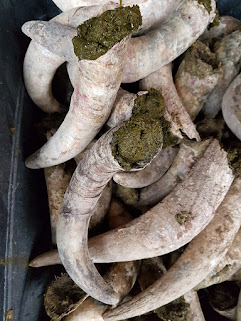In recent years, there has been a growing interest in sustainable and holistic farming practices that prioritize the health of the environment and the well-being of farmers. Biodynamic farming, with its unique approach rooted in ecological principles, has gained considerable attention among farmers and consumers alike. This blog explores the essence of biodynamic farming, its key principles, and its relevance to the agricultural landscape in the United Kingdom.
Understanding Biodynamic Farming
Biodynamic Farming Defined:
Biodynamic farming is an organic farming system that goes beyond the absence of synthetic chemicals and emphasizes the interconnectedness of soil, plants, animals, and the celestial rhythms. It takes into account the farm as a holistic organism, aiming to create a self-sustaining and balanced ecosystem.
Key Principles of Biodynamic Farming
Organic Practices:
Biodynamic farming adheres to strict organic standards, excluding the use of synthetic pesticides, herbicides, and genetically modified organisms (GMOs). Instead, it focuses on natural solutions, such as composting, cover cropping, and biological pest control.
Biodiversity and Self-Sufficiency:
Biodynamic farms prioritize biodiversity by encouraging a wide variety of plant and animal species. This promotes natural pest control, enhances soil fertility, and creates a resilient and self-sufficient farming system.
Biodynamic Preparations:
One unique aspect of biodynamic farming is the use of specially prepared herbal and mineral preparations. These preparations, such as the renowned "horn manure" and "horn silica," are used in minute quantities to enhance soil vitality and stimulate plant growth.
Biodynamic Farming Practices in the United Kingdom
Biodynamic Associations and Certification:
The United Kingdom has several biodynamic associations that support and promote biodynamic farming practices. Farmers can seek certification through these organizations, providing assurance to consumers that their products meet the highest standards of biodynamic agriculture.
Examples of Biodynamic Farms in the United Kingdom:
Tablehurst Farm: Located in Forest Row, East Sussex, Tablehurst Farm is a well-known biodynamic farm that has been operating for over 20 years. They follow biodynamic principles in their livestock and vegetable production, offering a wide range of organic and biodynamic products to the local community.
Hawkwood Biodynamic Farm: Situated in Chingford, London, Hawkwood Farm is a vibrant community-supported agriculture (CSA) project practicing biodynamic farming. They grow a diverse range of vegetables, herbs, and flowers using biodynamic methods, and also offer educational programs and workshops to promote sustainable agriculture.
Brambletye Biodynamic Farm: Located in Forest Row, East Sussex, Brambletye Farm has a rich history of biodynamic farming. They focus on orchard and vegetable production, employing biodynamic practices to ensure healthy soil and sustainable food production. They have a farm shop where customers can purchase their biodynamic produce.
Lauriston Farm: Situated in Dumfries and Galloway, Scotland, Lauriston Farm is a certified biodynamic farm. They specialize in dairy farming, producing organic and biodynamic milk, cheese, and yogurt. Their holistic approach to farming prioritizes the well-being of their animals and the land they cultivate.
Stroud Community Agriculture: Located in Stroud, Gloucestershire, Stroud Community Agriculture is a community-led farm that practices biodynamic and organic farming methods. They offer a community-supported agriculture scheme, providing members with a weekly share of seasonal, biodynamic produce.
Benefits of Biodynamic Farming
Environmental Sustainability:
Biodynamic farming nurtures healthy soils, promotes biodiversity, and minimizes the use of synthetic inputs. It helps mitigate climate change, protects water resources, and preserves the natural habitats of beneficial organisms.
Nutrient-Rich and Flavourful Produce:
By focusing on soil health and natural farming methods, biodynamic farming produces nutrient-dense crops with enhanced flavours. Consumers can enjoy fresh, vibrant, and wholesome produce that nourishes their bodies.
Connection to Nature:
Biodynamic farming encourages a deep connection between farmers and the land. It fosters a sense of stewardship, reverence for nature's rhythms, and a profound understanding of the interconnectedness of all living beings.
Conclusion:
Biodynamic farming offers a holistic and sustainable approach to agriculture that resonates with the values of United Kingdom farmers and consumers. By embracing the principles of biodynamic farming, farmers can cultivate thriving ecosystems, produce high-quality food, and contribute to a healthier planet.
Thank you for visiting Vantika Tech. We hope you found this blog on Biodynamic Farming insightful and informative.
#biodynamicfarming #sustainableagriculture #organicfarming #ukfarmers #holisticfarming #soilhealth #biodiversity



No comments:
Post a Comment